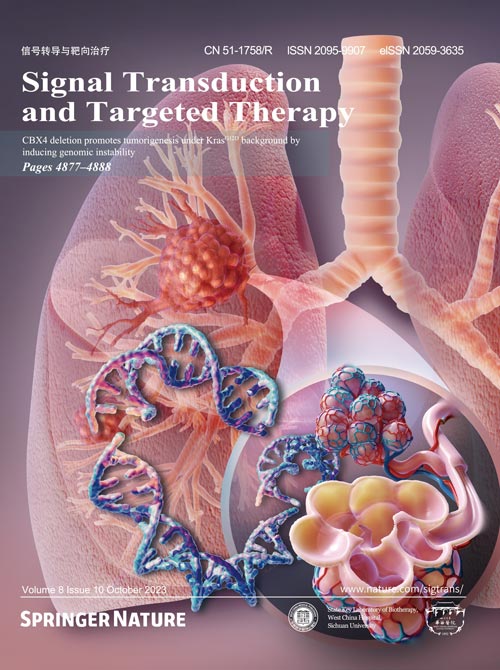Volume 8 Issue 10, Oct 2023:
Article
Long-term survival benefit of anti-PD-1 therapy in patients with relapsed or refractory classical Hodgkin lymphoma
Weiping Liu,Ningjing Lin,Xinqin Feng,Yan Xie,Chong You,Xiaohua Zhou
ORCID: orcid.org/0000-0001-7935-1222,Yuqin Song &…Jun Zhu
ORCID: orcid.org/0000-0003-3479-2547
Anti-programmed cell death-1 (anti-PD-1) therapies have shown a favorable efficacy and good tolerance for relapsed or refractory (r/r) classical Hodgkin lymphoma (cHL). However, there are limited data on long-term outcomes among patients with r/r cHL who achieve an objective response to anti-PD-1 therapies. A total of 260 responders from four, phase 2 clinical trials were included in this study. The median age was 32 years with a male/female ratio of 1.3:1. After a median follow-up period of 31.1 months, 116 (44.6%) responders experienced disease progression and 18 (6.9%) died. The 3-year progression-free survival (PFS) and overall survival (OS) rates were 55.1% and 89.7% overall. Patients with partial remission (PR) had inferior outcomes compared with those who achieved complete remission (3-year PFS, 29.5% vs. 72.3%, P < 0.001; 3-year OS, 81.5% vs. 94.4%, P = 0.017). Moreover, the survival outcome was inferior for patients with refractory disease compared with those with relapsed disease. Multivariate Cox regression analysis showed PR and refractory disease were independent risk factors for PFS. In conclusion, PR and refractory disease have a negative impact on the survival benefit of anti-PD-1 therapeutics in patients with r/r cHL, which highlights the need for multimodal treatment strategies.
